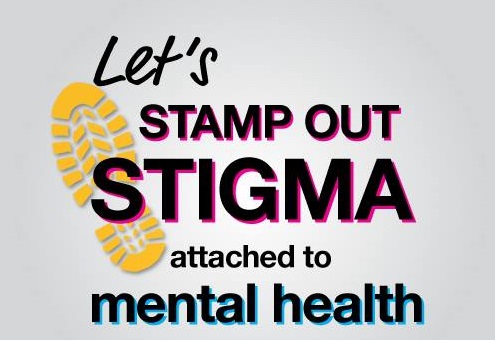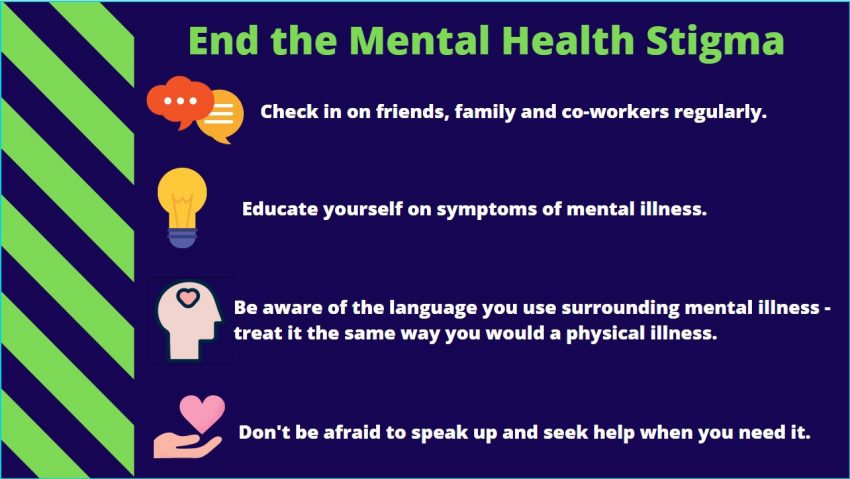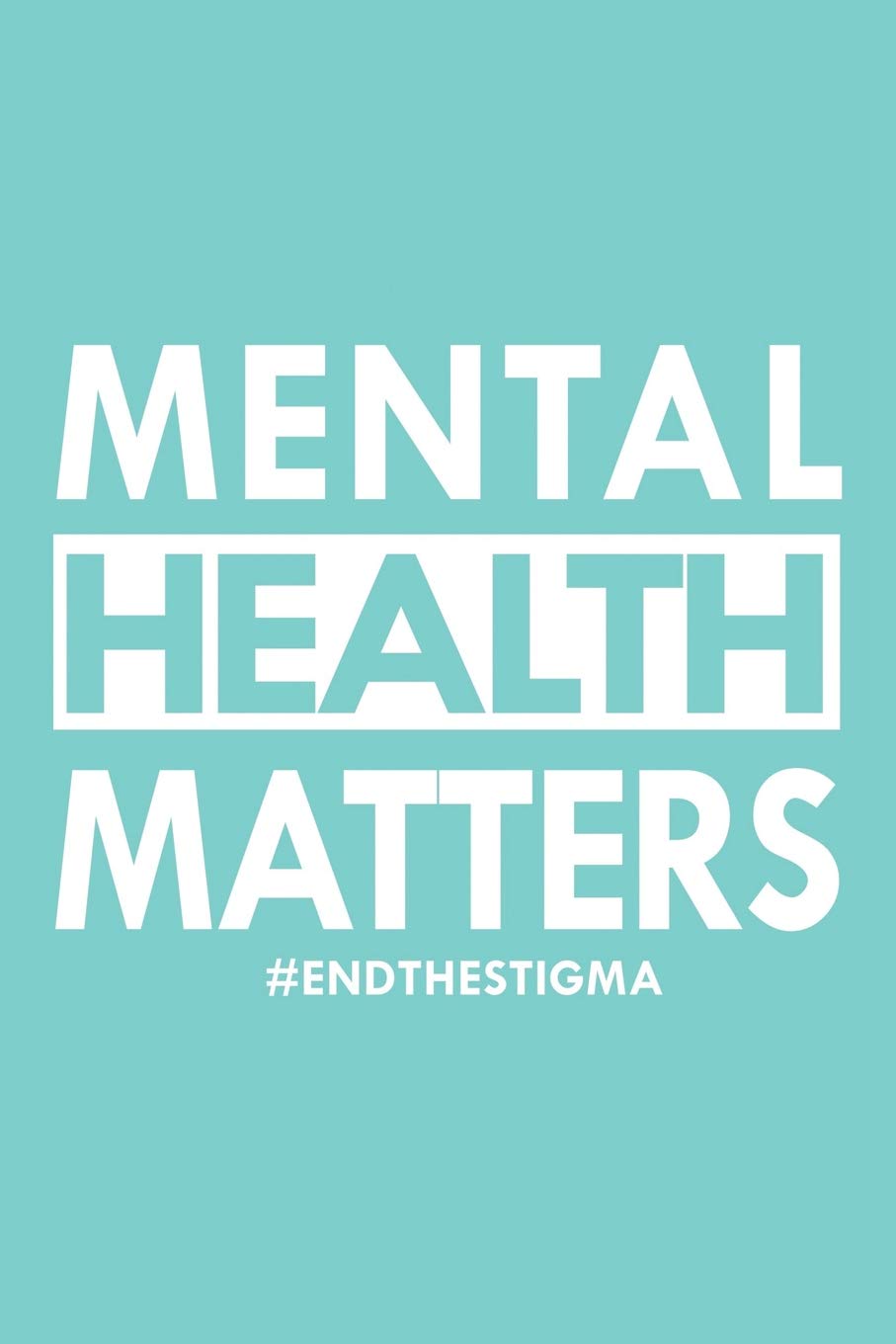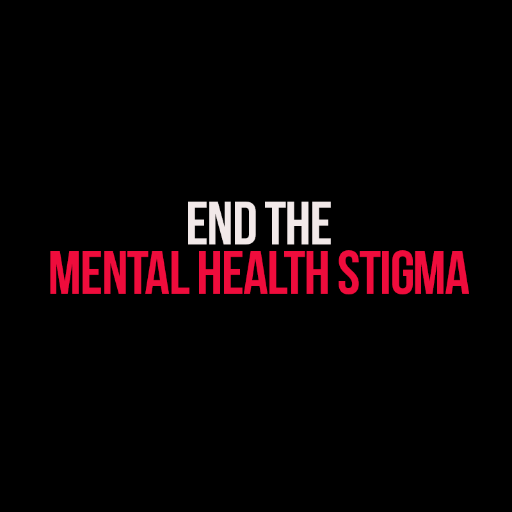Mental health stigma is a global problem. Even though mental health is a part of human life, it has been shrouded in secrecy and shame for centuries. Mental health conditions have been viewed as shameful, embarrassing, and indicative of personal weakness. This perception has led to widespread discrimination against people with mental health conditions. In this guide, we will explore the different aspects of mental health stigma and how we can work together to end it (ending mental health stigma).
Contents
Understanding Mental Health Stigma

Mental health stigma is the negative attitude and prejudice that is directed towards people with mental health conditions. It can manifest as discrimination in social settings. Such as being ignored or treated unfairly. Or it can be exhibited in more serious ways. Such as violence or abuse (Link et al 1997; Link et al 1999). Mental health stigma leads to a great deal of suffering for people with mental health conditions and their families (Sartorius et al 2001; Sartorius 2007).
Mental Health Stigma In Perspective
Mental health stigma is a complex phenomenon that has existed for centuries. But it was not given much consideration until the second half of the 20th century. In fact, despite its long history, stigma only became an area of research interest in the late 1960s (Goffman 1963). There are several reasons why mental health stigma has been ignored for so long.
- First, the definition of stigma is complex and difficult to agree on.
- Second, there is no single cause of stigma. Rather, it is the result of multiple factors including personal attitudes, cultural beliefs, and social norms.
- Third, because mental health conditions are so diverse, it is difficult to generalize about their causes or consequences.
- Fourth, stigma can be experienced in many different ways and its effects are not always obvious or easily measured.
- Finally, research on mental health stigma has been limited by small sample sizes that have led researchers to focus on specific groups of people rather than looking at the broader population (Corrigan 2004).
In a 2005 study by Corrigan, patients reported feeling stigmatized because of their illness in many different ways. They felt that other people thought they were dangerous or violent, that they were not capable of taking care of themselves, and that they were dirty or defective. Patients also reported feeling ashamed and embarrassed about their illness. They felt that others saw them as weak, crazy, and burdensome (Corrigan et al 2005).
Social Context of Mental Health Stigma
Mental health stigma occurs within a social context. It is shaped by the attitudes and beliefs of the people around us. This includes our family, friends, co-workers, and the wider community.
Family and friends: Family and friends are often the first people to stigmatize someone who is experiencing a mental health condition. They may not know how to talk about mental health conditions or what to say to someone who is experiencing a mental health crisis. They may feel uncomfortable and unsure of how to help. As a result, they may distance themselves from the person who is struggling or even withdraw their support altogether.
Co-workers: Co-workers can also be a source of stigma and discrimination. They may view people with mental health conditions as less capable or reliable than other employees. They may be afraid that someone who is experiencing a mental health condition will behave erratically or cause problems in the workplace.
The Wider Community: People with mental health conditions may feel that other people see them as dangerous or unpredictable and avoid interacting with them altogether. They may feel they are treated unfairly by institutions such as schools and hospitals because of their illness (Moses et al 2009).
Myths About Mental Health
There are several myths about mental health that need to be debunked. Some of these include:
Mental illness can be cured with medication: It is often thought that you only need to take medication to cure mental illness. Whilst it is true that many people find medication helpful, this isn’t always the case.
Mental illness is just a phase: Many people think that you can “grow out of” or “get over” your mental health condition. This isn’t true! Mental illnesses are real, chronic conditions that require treatment and support to recover from them.
Mental health conditions aren’t real: Often people think that mental health conditions like depression or anxiety are just “made up” illnesses. Some believe they’re the result of a person being weak or lazy. And some even think it’s all in your head!
People who have a mental health condition are dangerous: There is a common misconception that people with mental health conditions are violent or unpredictable. This couldn’t be further from the truth! Studies show that people with mental health conditions are no more violent than anyone else.
NOTE: It’s important to note that these are just a few of the many myths about mental health. They can often be heard in everyday conversations, which is why it’s so important for us to challenge them when we hear them!
Reasons Behind Mental Health Stigma
There are many different reasons why mental health stigma occurs. Some of the most common include:
Fear and ignorance: People may be afraid of mental health conditions because they do not understand them. They may think that people with mental health conditions are dangerous or will harm them.
Stories in the media: The media often portrays people with mental health conditions in a negative light. This can lead to the public developing misconceptions about mental health.
Societal norms: Many social norms contribute to mental health stigma. For example, the belief that it is shameful to be mentally ill or to have a family member who is mentally ill.
Individual experiences: Each person’s experience with mental health stigma will be different. This is because stigma is shaped by personal attitudes, cultural beliefs, and social norms.
Lack of knowledge: People may not know how to talk about mental health conditions or what to say to someone who is experiencing a mental health crisis. This can lead to them feeling uncomfortable and unsure of what to do.
Cultural beliefs: Some cultures may have traditional beliefs about mental health that contribute to stigma. For example, in some cultures, it is believed that mental health conditions are caused by evil spirits or bad luck.
Negative attitudes and stereotypes: People may hold negative views about mental health conditions based on myths and misconceptions. For example, they may believe that people with mental health conditions are lazy or that they can’t be helped.
Prejudice and discrimination: People may treat those with mental health conditions unfairly because of their attitudes towards mental health. This can manifest in many different ways, including social exclusion, verbal abuse, and violence.
Evaluating Mental Health Stigma

There is a growing body of research on mental health stigma that is helping to better understand its causes and consequences. However, much of this research is still in its early stages and more work needs to be done.
Some of the ways that researchers have attempted to measure mental health stigma include:
Self-reported stigma: This is when people are asked to report how much they feel stigmatized by their illness.
Stigma consciousness: This is when people are asked to report how aware they are of the stigma that surrounds mental health conditions.
Perceived stigma: This is when people are asked to report how much they think other people view them in a negative light because of their illness.
Attitudes towards people with mental health conditions: This is when people are asked to report their views on mental health conditions and those who have them.
Consequences of Mental Health Stigma
Mental health stigma can have several negative consequences for people who experience it. These include:
Suicide: Those who experience mental health stigma are more likely to attempt suicide than those who do not.
Stress: Mental health stigma can be a source of stress for people with mental health conditions and their families.
Shame and isolation: People with mental health conditions may feel ashamed of their illness and isolate themselves from others.
Lack of support: People with mental health conditions may not seek help from family or friends because they are afraid of being judged or ridiculed.
Poor physical health: People with mental health conditions are more likely to have poor physical health due to poor diet, lack of exercise, and other factors.
Lower quality of life: People with mental health conditions are less likely to have a good quality of life because they may not be able to work or take care of themselves properly.
Difficulty accessing services: People who experience mental health stigma may find it harder to access the healthcare they need, such as counseling or medication. This is because they may feel too embarrassed to tell someone about their problems or they may be worried that they will be judged.
Ending Mental Health Stigma

It is important to remember that ending mental health stigma is a collective effort. We all have a role to play in creating a society where people with mental health conditions are accepted and respected. By working together, we can help create a world where no one feels ashamed or alone because of their mental health condition.
Here we suggest four action steps in your fight against mental stigma:
- Challenge the stigma of mental illness
- Be an ally against mental health stigma
- Promote acceptance and inclusion
- Bring mental health patients mainstream
Mental health stigma is a barrier to treatment and recovery. It can lead people not to seek help or support when they need it most, which has devastating consequences for them and their families. By being aware of how we contribute to this stigma, we can all play our part in ending it once and for all.
Challenge Stigma of Mental Illness
How often do you hear someone say “I’m so depressed” or “I’m so OCD”? Chances are, not very often. This is because mental health conditions like depression and OCD are still seen as shameful and embarrassing. And it’s this kind of thinking that helps to fuel mental health stigma.
How can we challenge the stigma of mental illness? Here are four things you can do to help end the mental health stigma:
Educate yourself: The more you know about mental health conditions, the less likely you are to judge people who have them. Read books, articles, and watch documentaries about mental health to learn more about the different conditions that exist.
Start a conversation: The best way to challenge the stigma of mental illness is to start a conversation about it. Talk to your friends, family, and colleagues about your own experiences with mental health, or listen to the stories of others.
Challenge the myths about mental health: There are several myths and misconceptions about mental health conditions that contribute to stigma. We need to challenge these myths and educate people about the real facts.
Change your language: Try not to use words like “crazy,” “insane,” or “psycho” when talking about people with mental health conditions. Instead, try saying something like “she has schizophrenia,” or “he is autistic.”
Be an ally: If you hear someone making a joke about mental illness, don’t laugh. Instead, tell them that it’s not OK to make jokes about people with mental health conditions. You could also point out the fact that many famous and successful people have been diagnosed with a mental health condition.
Be An Ally Against Mental Health Stigma
If you’re not sure how to be an ally against mental health stigma, here are five simple things you can do:
Speak out: If you see someone making a derogatory comment about mental health, speak up. Show that you don’t agree with the way they’re talking about mental health and explain why.
Volunteer your time: Mental health services often need volunteers to help out with things like fundraising, education, or peer support. Contact your local mental health service and see how you can get involved.
Getting involved in campaigns: We can get involved in campaigns to end mental health stigma, such as Time To Change or Rethink Mental Illness’ #hellomynameis campaign.
Spread the word: One of the best ways to fight stigma is to talk about it openly. Share this article on social media, or talk to your friends and family about the importance of ending mental health stigma.
Donate money: Mental health services often don’t receive the same level of government funding as physical health services. You can donate money to organizations like NAMI or MHA to help support those who have mental health conditions.
Acknowledge the severity of mental illness: Mental illnesses are not “all in your head”. They are real and they can be just as debilitating as physical illnesses such as cancer or diabetes. If you have a friend who has a mental illness, acknowledge that it’s serious and offer them support.
The more we talk about it, the more likely we are to end it.
Promote Acceptance And Inclusion
If you want to promote acceptance and inclusion, try these three simple steps:
Show compassion: We should always show compassion to people with mental health conditions, just as we would for anyone else who is going through a difficult time.
Challenge discrimination: Discrimination against people with mental health conditions is still far too common. We need to challenge this type of behavior whenever we see it.
Don’t assume anything: When you meet someone with a mental illness, don’t jump to conclusions about them. They may have different needs than you do, which is OK. But they are still deserving of love and respect just like anyone else.
Learn about mental health conditions: We all must increase our knowledge of what a mental illness is. So that we can understand the challenges faced by people with these conditions. This will help us to treat them as equals instead of seeing them as “other”.
Bring Mental Patients Mainstream
To end mental health stigma, it is important to bring mental health conditions out of the shadows and into the mainstream. This means talking about them more openly and educating people about them.
There are several ways that we can do this, including:
Promoting positive images of mental illness: We must promote positive images of those with mental health conditions in the media. So people see them as normal members of society rather than a burden.
Creating more opportunities for people with mental health conditions to share their stories: It is powerful when those who have been struggling with mental health conditions can share their stories. This can help to break down the barriers that have been an unfortunate outcome of stigma.
Asking questions: If you’re not sure what to say or how to act around someone with a mental illness, ask them. Let them know that you care about their condition and want to be there for them if they need anything from you.
Treating people with mental health conditions the same as anyone else: We should always treat people with mental health conditions the same way we would treat anyone else. With respect and compassion.
NOTE: We have the power to end mental health stigma. It will take time and effort on our part, but it is possible. There are many things we can do to reduce stigma, including talking openly about mental illness with others and sharing resources that educate people about these conditions. We must work together if we’re going to end this problem once and for all!
Dealing With Mental Health Stigma

Dealing with mental health stigma can be difficult, but there are ways to cope. Here are some tips:
Keep talking about it: We must continue talking about mental illness so that others know they aren’t alone. We need to keep this conversation going until everyone understands the facts and realizes how common these conditions are!
Be kind to yourself: Don’t blame yourself for having a mental illness. There’s no reason not to be proud of who you are and what makes up your life experience! Everyone deserves respect regardless of their circumstances or diagnosis; so do not let anyone tell otherwise!
Surround yourself with people who support you: It can be hard when we’re dealing with stigma to find people who understand and support us. But it’s important to have a strong support system during these times. So, make sure to surround yourself with people who care about you and want to see you succeed!
Educate yourself: The more we know about mental health conditions, the less likely we are to judge others. So, make sure you’re staying up-to-date on all things related to mental illness! That way we can help educate others too!
NOTE: Mental illnesses are real. And they can be just as debilitating as any physical illness. Mental health stigma harms people’s lives and we need to do something about it! If you’re struggling with mental health issues, seek help from your doctor or therapist before things get worse (and if they already have). The sooner you get treatment, the better!
Hearing From Experts

Many people have experience working in the field of mental health. They have a lot of insight into the topic and can help us to better understand what it is like for people with mental illnesses.
Here are some quotes from experts in the field:
Dr. Sue Varma, psychiatrist: “People with mental illness often feel ostracized because they don’t know how others will react to them. They may go through life hiding their condition from others, or they might try to act “normal” to avoid being stigmatized.
Stigma can be a barrier for people with mental illness, who may not seek treatment because of the way society views them.”
Dolly Chugh, associate professor at NYU: “People often think that mental illness is a weakness or something to be ashamed of. In reality, it is an illness like any other and should be treated with compassion.”
Case Study
Ending Mental Health Stigma
In 2010, the United Kingdom launched a campaign called “Time to Change” which aimed to reduce the stigma surrounding mental health conditions. The campaign used several methods to spread awareness, including television advertisements and social media.
The campaign was very successful and led to a decrease in stigma among people aged 25-34 by 17%. This age group is one of the most stigmatized when it comes to mental health conditions because they are less likely than older or younger generations to seek help for their illness.
Resources
If you’re looking for more information on how to end mental health stigma, check out these resources:
- Time To Change: This website provides lots of information on how to challenge mental health stigma.
- Rethinking Mental Illness: This UK-based organization has a lot of great resources on ending mental health stigma.
- NAMI: The National Alliance on Mental Illness has lots of great resources for people with mental illnesses and their families.
Conclusion
Mental health stigma is a very real problem in our society. And it can be extremely damaging to those who are dealing with it. We all must try our best to treat people with mental illnesses just like we would anyone else.
It’s also crucial that we educate ourselves about the different types of treatments available for mental health conditions and the importance of early intervention. Together, we can end the stigma of mental illness and make our society a more welcoming place for everyone.
A Word From Therapy Mantra
Your mental health — Your psychological, emotional, and social well-being — has an impact on every aspect of your life. Positive mental health essentially allows you to effectively deal with life’s everyday challenges.
At TherapyMantra, we have a team of therapists who provide affordable online therapy to assist you with issues such as depression, anxiety, stress, workplace Issues, addiction, relationship, OCD, LGBTQ, and PTSD. You can book a free therapy or download our free Android or iOS app.


